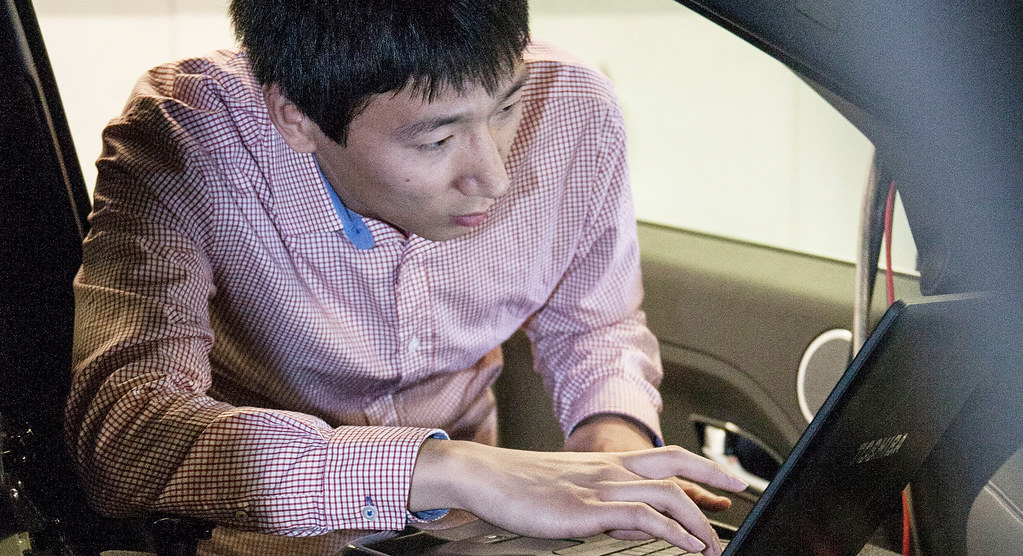I first joined Bath as an MSc student studying automotive engineering. After a year of fast-paced lectures and research projects, I decided to stay longer and applied for a postgraduate research degree. My PhD project focused on internal combustion engine boosting technologies, which involves increasing the power of smaller engines, thus reducing overall CO2 emissions. The state-of-the-art facilities and close ties with industry that Bath has allowed me to take part in the development of technologies that will shape the future.
Working in industry
From June 2017 to March 2020 I worked as a System Engineer at Jaguar Land Rover, initially helping to update JLR engines with electric boosting technologies. Later I worked on the various hybrid car and electric car products, from research to advanced engineering through to product launch.
Throughout my time at Jaguar, I supported the EU Commission in greenhouse gas emissions legislation as a representative in the industry, writing technical proposals. I developed several mathematical tools used to calculate incentives for environmentally friendly technologies worth billions of Euros each year.
Returning to academia
I always wanted to work in academia, because I am excited about working with young people and what they bring to the sector. Since returning to the University of Bath as a Lecturer, I have been focusing on representing physical systems using various mathematical methods, as well as the use of simulations to find engineering optimum.
I am looking to continue my strength in automotive propulsion system optimisation, but I am also expanding my research into new areas such as modelling and simulation for autonomous driving. The University's test rigs and High-Performance Computers allow me to work on the technologies that most excite me.
A fascination with the automotive research sector
I love working in this sector because it is highly specialised and competitive, bringing people and companies from across the globe to collaborate in different areas. The amazing rate at which technology spreads and costs are reduced, results in individual technologies becoming quickly standard and encourages replacement by newer and better technologies. In my opinion, this trend is undoubtedly accelerating. This pace of change makes the automotive sector one of the most exciting to work in.
I think that in the future, artificial intelligence will replace automotive engineers, in areas such as design, calibration and system optimisation. These areas are the bottleneck that consumes most resources in the product development process. This is not to say the engineers are no longer needed, but they will need to diversify their skillset. For example, with the commercialisation of fusion energy, engineers will need to consider efficiency from a totally different perspective – new system requirements, new algorithms will be needed that cannot be created by an artificial mind. At Bath, we are anticipating these changes and updating our teaching to reflect the needs of industry.
